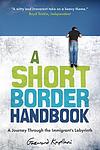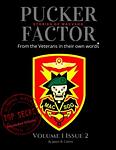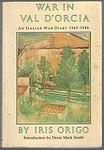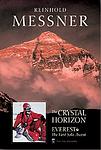The Greatest Italian, Greek "Autobiography" Books of All Time
Click to learn how this list is calculated.
This list represents a comprehensive and trusted collection of the greatest books. Developed through a specialized algorithm, it brings together 300 'best of' book lists to form a definitive guide to the world's most acclaimed books. For those interested in how these books are chosen, additional details can be found on the rankings page.
Genres
Autobiography is a literary genre that focuses on the life story of the author. It is a first-person account of the author's experiences, thoughts, and emotions, often including significant events and milestones that have shaped their life. Autobiographies can be written by anyone, from famous public figures to ordinary people, and can cover a wide range of topics, including personal growth, career achievements, struggles, and relationships. This genre provides readers with a unique insight into the author's life and perspective, making it a popular and engaging category of books.
Countries
Date Range
Reading Statistics
Click the button below to see how many of these books you've read!
Download
If you're interested in downloading this list as a CSV file for use in a spreadsheet application, you can easily do so by clicking the button below. Please note that to ensure a manageable file size and faster download, the CSV will include details for only the first 500 books.
Download-
1. If This Is a Man by Primo Levi
This book is a deeply moving and insightful memoir of a survivor of Auschwitz, a Nazi concentration camp during World War II. The author, an Italian Jew, provides a detailed account of his life in the camp, the brutal conditions, the dehumanization, and the struggle for survival. The narrative is a profound exploration of the human spirit, resilience, and the will to live, despite unimaginable horror and suffering. It also raises profound questions about humanity, morality, and the capacity for evil.
-
2. History of My Life by Giacomo Casanova
"History of My Life" is an autobiography of an Italian adventurer and author, who is best remembered for his often complicated and elaborate affairs with women. The book offers a fascinating insight into his life, travels, and encounters. It provides an intimate look at the social customs and life of the 18th century, as well as the author's personal philosophies on a variety of subjects, including love, luck, and the importance of maintaining a sense of humor.
-
3. The Periodic Table by Primo Levi
"The Periodic Table" is a collection of short stories that use elements of the periodic table as metaphors to explore the author's experiences as a Jewish-Italian chemist before, during, and after World War II. Each chapter is named after a chemical element, reflecting its significant role in the story. The work provides deep insights into the human condition and the power of science, while also serving as a poignant memoir of survival during the Holocaust.
-
4. Christ Stopped at Eboli: The Story of a Year by Carlo Levi
The book is a memoir about the author's year of exile in a remote region of southern Italy during the fascist regime. It depicts the harsh living conditions, poverty, and backwardness of the area, where the peasants' lives are ruled by superstition and tradition. Despite the difficulties, the author finds beauty and dignity in the people and their way of life, and he paints a vivid picture of their culture, beliefs, and struggles. The title refers to the locals' belief that they have been forgotten by modernity and even by God.
-
5. The Drowned and the Saved by Primo Levi
This book is a deeply moving exploration of the Holocaust, written by a survivor. It delves into the horrifying experiences at Auschwitz, examining the psychological impact on the prisoners, the brutal behavior of the guards, and the complex moral dilemmas faced by both. The author also discusses the concept of memory and its unreliability, especially in the context of such traumatic events, and analyzes the ways in which the Holocaust has been represented and remembered in society. The book serves as a profound meditation on the human condition under extreme circumstances.
-
6. Autobiography by Benvenuto Cellini
The book is a vivid personal account of a 16th-century Italian artist and goldsmith, providing a detailed portrayal of Renaissance life. The author narrates his tumultuous career, which spanned artistic triumphs, patronage under powerful figures, and frequent legal and violent skirmishes. His narrative is filled with tales of his work on important commissions, his encounters with notable contemporaries, and his passionate dedication to art. The autobiography stands out for its lively storytelling, the author's brash personality, and insights into the social and cultural dynamics of the time, making it a valuable historical document as well as an engaging personal story.
-
7. Logbook by George Seferis
This book is a poetic diary that captures the author's reflections during a period of personal and national crisis. Through its entries, the reader is taken on a journey that intertwines the landscapes of Greece with the turmoil of World War II, offering insights into the author's thoughts on history, culture, and the human condition. The diary format allows for an intimate exploration of the author's internal world, as he grapples with the existential questions posed by the surrounding chaos. Rich in imagery and emotion, this work not only serves as a historical document but also as a profound meditation on the resilience of the human spirit in the face of adversity.
-
8. Cosima by Grazia Deledda
The novel unfolds the life of Cosima, a semi-autobiographical character, as she navigates the complexities of her existence in a small Sardinian village. Through her eyes, readers experience the rich tapestry of rural Italian life at the turn of the 20th century, marked by strong family bonds, social expectations, and the struggle for personal independence. As Cosima grows from a curious child into a thoughtful adult, she grapples with her aspirations, the constraints placed upon her by society, and her deep connection to her homeland, all while drawing inspiration from the natural beauty and cultural traditions that surround her. The narrative is a poignant exploration of identity, the pursuit of one's passions against the odds, and the enduring influence of one's roots.
-
9. The Memoirs Of General Makriyannis by Makriyannis
This book is a firsthand account of the Greek War of Independence against Ottoman rule in the 19th century, as told by General Makriyannis, a key figure in the struggle. Through his vivid and detailed narrative, the reader gains insight into the challenges, battles, and political intrigues of the time. Makriyannis not only recounts his personal experiences and the sacrifices made for Greece's freedom but also reflects on the broader themes of patriotism, leadership, and the quest for national identity. His memoirs serve as a crucial document for understanding the complexities of the Greek fight for independence and the emergence of the modern Greek state.
-
10. Το Ταξίδι Μου by Yiannis Psycharis
This book is a seminal work in modern Greek literature, chronicling the author's transformative journey from France to his ancestral homeland of Greece. Through a series of vividly described travels across the Greek landscape, the narrative delves into the author's exploration of his cultural and linguistic roots, advocating for the demotic Greek language over the purist katharevousa. The journey is not only geographical but also deeply personal and intellectual, reflecting on the nature of Greek identity, the beauty of the Greek countryside, and the importance of connecting with one's heritage. The work has had a profound impact on the Greek language debate and is celebrated for its contribution to the shaping of modern Greek identity.
-
11. Report To Greco by Nikos Kazantzakis
This book is a semi-autobiographical novel that delves into the spiritual journey of its protagonist, blending historical fact with philosophical musings and fictional elements. Through a series of reflective essays and narratives, the protagonist embarks on a quest for spiritual enlightenment, exploring the tensions between the flesh and the spirit, the individual and society, and the temporal and the eternal. Set against the backdrop of the early 20th century and drawing heavily on the author's own life experiences, the narrative weaves through various landscapes and encounters with key historical figures, offering a deep meditation on the nature of human existence, the quest for freedom, and the pursuit of faith amidst the complexities of the modern world.
-
12. Survival In Auschwitz by Primo Levi
This book is a harrowing, first-person account of a man's year-long ordeal in Auschwitz, the infamous Nazi concentration camp. The narrative details the brutal conditions, the dehumanizing treatment, and the constant struggle for survival. Despite the horrors he faces, the author emphasizes the importance of maintaining one's humanity and dignity, even in the face of unimaginable cruelty. The book serves as a poignant reminder of the depths of human depravity, as well as the resilience of the human spirit.
-
13. Il Mestiere Di Vivere by Cesare Pavese
The book is a deeply personal diary that chronicles the inner life of its author, a prominent Italian writer, over a period of more than a decade. It offers a raw and intimate glimpse into his thoughts, daily experiences, and struggles with existential questions, relationships, and his own creative process. The diary entries reflect on themes of solitude, despair, and the search for meaning, as well as the author's observations on literature, politics, and the human condition. The work is renowned for its literary introspection and the poignant exploration of the challenges inherent in the "craft of living."
-
14. No Picnic on Mount Kenya by Felice Benuzzi
This book is a true story about three Italian prisoners of war in British East Africa during World War II who escape from their POW camp to climb Mount Kenya, Africa's second highest mountain. The narrative is not only about their audacious adventure, but also about the power of the human spirit, camaraderie, and the freedom of the wild. After their climb, they voluntarily return to their POW camp, where they are punished but also celebrated for their incredible feat.
-
15. Crossing The Threshold Of Hope by Pope John Paul II
In "Crossing the Threshold of Hope," the author provides a profound exploration of his faith and addresses complex theological and philosophical questions about Christianity. Through a series of letters, he discusses the nature of faith, the existence of God, the role of the Church, and the challenges of contemporary moral issues. This book offers insights into his personal beliefs and provides guidance on how individuals can find hope and meaning in their lives through spiritual commitment and religious understanding.
-
16. A Short Border Handbook by Gazmend Kapllani
"A Short Border Handbook" is a poignant and thought-provoking memoir that follows the journey of a young Albanian man who leaves his homeland to seek a better life in Greece. Through a series of vivid and often humorous anecdotes, the author explores themes of identity, belonging, and the complexities of borders, both physical and metaphorical. With a mix of personal experiences and historical context, this book offers a unique perspective on the challenges and triumphs of immigration, ultimately revealing the universal human desire for freedom and acceptance.
-
17. Stories And Recollections by Umberto Saba
"Stories and Recollections" is a collection of autobiographical prose by an Italian writer, offering a window into the author's life and times. The book weaves together a series of personal anecdotes, reflections, and narratives that span the author's childhood, adolescence, and adulthood. Through these stories, the reader gains insight into the writer's Jewish heritage, his experiences in Trieste, and the broader cultural and historical context of early 20th-century Europe. The work is characterized by its intimate tone and the author's candid exploration of identity, family, and the complexities of human relationships.
-
18. Journey To The Land Of Flies And Other Travels by Aldo Buzzi
This book is a collection of travel essays that take readers on a whimsical and insightful journey through various parts of the world. The author, with a keen eye for detail and a taste for the eccentric, shares his experiences and observations from his travels, ranging from the titular land of flies to the bustling streets of New York and the serene landscapes of Europe. His writing is infused with a mix of humor, reflection, and a deep appreciation for the cultures and cuisines he encounters, making this work a delightful read for those who enjoy literary travelogues and the exploration of foreign places through the eyes of a perceptive and thoughtful wanderer.
-
19. Memoirs Of Lorenzo Da Ponte by Lorenzo Da Ponte
"Memoirs of Lorenzo Da Ponte" is an autobiographical account of the life of Lorenzo Da Ponte, an Italian poet and librettist best known for his collaboration with Mozart. The memoirs trace his colorful and tumultuous life from his early years in Venice, where he was ordained as a priest, through his banishment from Venice due to his scandalous activities, to his significant contributions to the world of opera in Vienna. The narrative also covers his later years in the United States, where he worked in various capacities, including as a grocer and a professor of Italian literature. Da Ponte's memoirs provide a vivid portrayal of the cultural and social dynamics of Europe and America in the late 18th and early 19th centuries, as well as intimate insights into his personal trials and the artistic milieu of his time.
-
20. War In Val D'orcia by Iris Origo
"War in Val d'Orcia" is an enthralling diary that provides a vivid account of life in the Tuscan countryside during World War II. Written by an Englishwoman living in Italy, the diary spans the years 1943-1944, detailing the daily challenges faced by local peasants, the author's efforts to aid escaped Allied prisoners of war, and the impact of the German occupation on the region. The narrative captures the resilience and courage of the local community amidst the horrors of war, offering a unique and deeply personal perspective on the broader historical events unfolding around them.
-
21. The Crystal Horizon by Reinhold Messner
"The Crystal Horizon" is a gripping account of the author's solo climb of Mount Everest without the aid of supplemental oxygen, a feat never accomplished before. The book not only details the physical and mental challenges faced during the climb but also delves into the philosophical and spiritual journey the author undergoes. The narrative is interspersed with reflections on the history and culture of the Himalayas, the nature of mountaineering, and the author's personal beliefs and motivations.
-
22. Adults in the Room by Yanis Varoufakis
This book provides a behind-the-scenes look at the European financial crisis from the perspective of a former Greek finance minister. It offers an insider's view of the negotiations and power plays that took place between Greece and its international creditors during the country's economic crisis. The book reveals the author's struggles against the austerity measures imposed by the European Union and the International Monetary Fund, and his eventual resignation when he realized the futility of his efforts. It is a critique of the European Union's economic policies and a plea for more democracy in global finance.
-
23. The Mountains of My Life by Walter Bonatti
"The Mountains of My Life" is a collection of memoirs by a renowned mountaineer, recounting his numerous adventures and expeditions to some of the world's highest and most challenging peaks. The book includes detailed accounts of his climbs, including the first winter solo ascent of the Matterhorn's north face and the first solo winter ascent of the Grandes Jorasses' north face. The narrative also delves into controversial events, such as the author's disputed role in the first ascent of K2. The book is a thrilling blend of mountaineering history, personal reflection, and breathtaking descriptions of nature's grandeur.
Reading Statistics
Click the button below to see how many of these books you've read!
Download
If you're interested in downloading this list as a CSV file for use in a spreadsheet application, you can easily do so by clicking the button below. Please note that to ensure a manageable file size and faster download, the CSV will include details for only the first 500 books.
Download


















